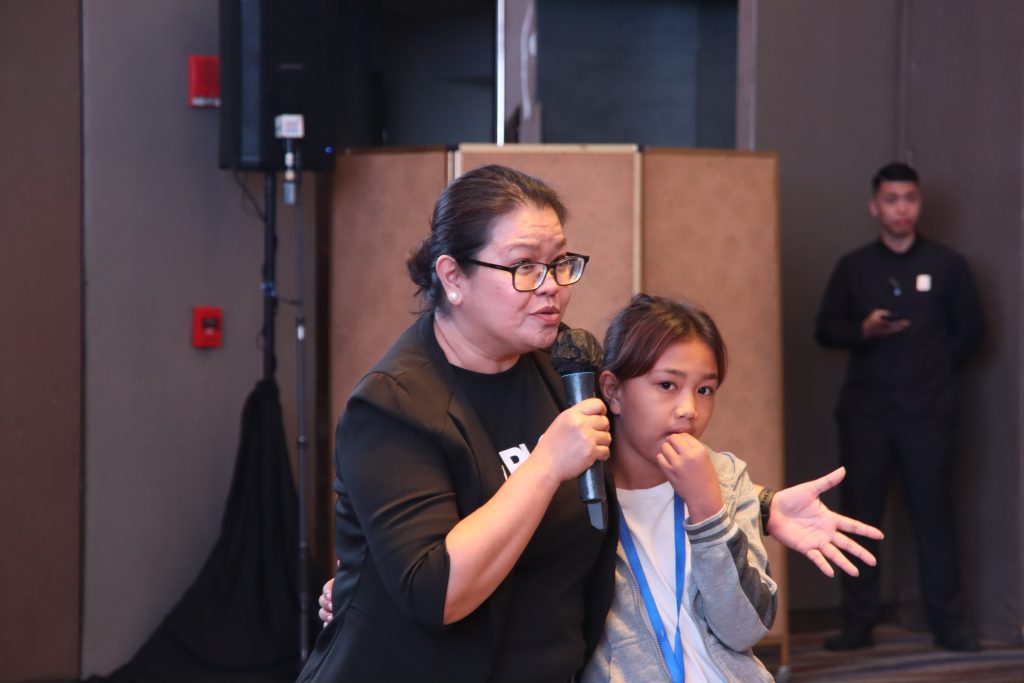Civil Registration Bill pushed to help 3.7M Pinoys without birth certificates
A bill is being pushed to make civil registration, including birth, death, and marriage registration, accessible to millions of Filipinos in need.
According to the Philippine Statistics Authority (PSA), approximately 3.7 million Filipinos, including 1.4 million children aged 0 to 14, have no birth certificates. Many of these individuals are in remote and disadvantaged areas where the process of acquiring a birth certificate is hindered by distance, low literacy, or financial constraints.
“Without a birth certificate, a child or an individual faces the risk of being denied their rights to identity, education, health services, inheritance, employment, and even legal justice in cases where determining the age is crucial,” said Mr. Romeo Dongeto, Executive Director of the Philippine Legislators’ Committee on Population and Development (PLCPD).
“A birth certificate is every Filipino child’s passport to their hopes and dreams. We need to pass the Civil Registration Bill to make birth registration free and accessible, especially for the most vulnerable Filipinos,” added Mr. Dongeto, noting that the bill also involves modernizing and digitizing the civil registration system, as well as establishing barangay level registration to reach more marginalized sectors.
Similar challenges plague death registration. Many deaths go unreported due to logistical hurdles and cultural practices, particularly in the Bangsamoro Autonomous Region in Muslim Mindanao (BARMM), where only 42 percent of deaths were registered in 2021, according to PSA data.
“A death certificate is needed for surviving family members to access inheritance, social pensions, insurance, and burial assistance. With an improved and accessible civil registration system, the government can properly assist these individuals and ensure that their rights are being upheld,” said Atty. Sophia Monica San Luis, a global expert on civil registration and vital statistics (CRVS). Atty. San Luis added that the bill can also help achieve higher registration rates of customary marriages, which legitimizes and benefits spouses and their children.
‘Bill crucial for progress’
House Deputy Majority Leader and Tingog Party-List Rep. Jude Acidre, one of the principal authors of the Civil Registration Bill in the House of Representatives, said that the benefits of an improved civil registration system do not end with the individual’s ability to access their rights; they also translate into foundational data that supports national progress.
“If every birth or vital event of a Filipino is registered, we can generate accurate data. With accurate data, we can make evidence-based policies and decisions to ensure that no one is being left behind,” Representative Acidre said.
Representative Acidre also pointed out that making civil registration more accessible will help the government through increased contributions from more registered Filipinos who are more likely to have better earning capacities.
Department of Health (DOH) Undersecretary Dr. Emmie Liza Perez-Chiong said that reforming the civil registration system will address the huge gaps in the availability and quality of critical data on vital events of a person, including birth, marriage, and death.
Undersectary. Perez-Chiong said that the DOH recognizes that accurate data is crucial in national health policy and planning and coordinating services for the Filipino population at all levels of the country’s healthcare system.
“The Department of Health welcomes and supports all initiatives to pass an enabling law strengthening the Philippine civil registration and vital statistics system, updating existing institutional and coordination mechanisms for civil registration, and improving access to reliable vital statistics to ensure alignment and monitor health system performance,” she added.
“An omnibus bill on CRVS is long overdue and should be a legislative priority to improve further the efficiency of the delivery of civil registration services as well as ensuring the integrity of civil registry documents in the civil registry offices,” said National Statistician and Civil Registrar General Claire Dennis Mapa, adding that the Philippine Statistics Authority supports the passage of the comprehensive Civil Registration Bill.
The last comprehensive national law on civil registration, the Civil Registry Law or RA 3753, was enacted more than 90 years ago, in 1930.
‘Bill to prevent fraudulent registration’
“The Civil Registration Bill will help deter fraudulent registrations by strengthening the network of local civil registrars and providing stronger disciplinary measures against fraud, including the imposition of sanctions and penalties against public employees or officials,” Atty. San Luis said.
Sen. Risa Hontiveros, the principal author of the Civil Registration Bill in the Senate, underscored the bill’s importance amid the Senate’s probe on a small-town mayor’s alleged criminal activities, including falsification of civil registry documents.
“Our current investigation has revealed deep cracks in our systems that need correcting. It also exposed the ways our institutions have been corrupted by unscrupulous individuals who want to exploit the weaknesses of our people. The most vulnerable in society are affected by the lack of an efficient and honest civil registration and vital statistics system,” said Senator Hontiveros.
“Delayed registration of birth happens. This is a significant concern especially among Filipinos who lack the financial means to obtain a birth certificate. But it’s a different story if the weaknesses of our system are being abused, like in the case of the Guo family. A streamlined and strengthened civil registration and vital statistics system is needed to safeguard the safety, nationality, and citizenship of the most vulnerable Filipinos,” she added.
“Civil registration documents, such as a child’s birth certificate, establish a person’s legal identity and become a vital source of information for the country’s legislators, policymakers, and implementing agencies. A highly developed civil registration and vital statistics system is a crucial national resource for delivering public services to our citizens,” Senator Hontiveros concluded.
On July 12, PLCPD and the Child Rights Network (CRN), with support from Asmae Philippines, organized an issue orientation with media practitioners on the challenges in the current CRVS system. Amid reports of fraudulent delayed birth registrations, it is important that the legitimate needs of individuals who have difficulty securing delayed birth registration are not compromised. As such, advocates are putting a spotlight on the bill’s comprehensive framework, including its ability to address fraudulent registration, which is a pressing national security concern.


